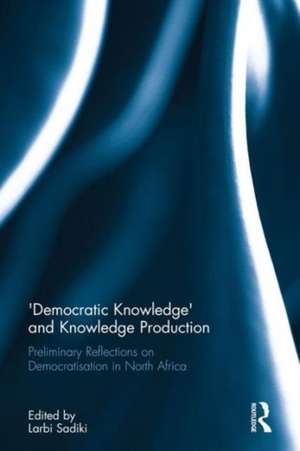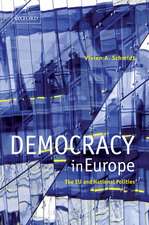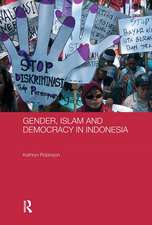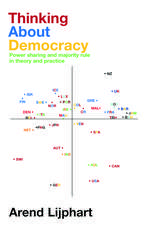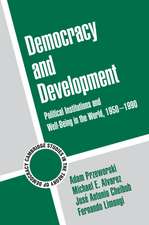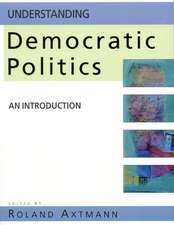'Democratic Knowledge' and Knowledge Production: Preliminary Reflections on Democratisation in North Africa
Editat de Larbi Sadikien Limba Engleză Hardback – 4 iul 2016
| Toate formatele și edițiile | Preț | Express |
|---|---|---|
| Paperback (1) | 416.22 lei 6-8 săpt. | |
| Taylor & Francis – 19 dec 2018 | 416.22 lei 6-8 săpt. | |
| Hardback (1) | 1159.70 lei 6-8 săpt. | |
| Taylor & Francis – 4 iul 2016 | 1159.70 lei 6-8 săpt. |
Preț: 1159.70 lei
Preț vechi: 1414.28 lei
-18% Nou
Puncte Express: 1740
Preț estimativ în valută:
221.95€ • 231.10$ • 187.57£
221.95€ • 231.10$ • 187.57£
Carte tipărită la comandă
Livrare economică 08-22 martie
Preluare comenzi: 021 569.72.76
Specificații
ISBN-13: 9781138685901
ISBN-10: 1138685909
Pagini: 142
Dimensiuni: 156 x 234 mm
Greutate: 0.34 kg
Ediția:1
Editura: Taylor & Francis
Colecția Routledge
Locul publicării:Oxford, United Kingdom
ISBN-10: 1138685909
Pagini: 142
Dimensiuni: 156 x 234 mm
Greutate: 0.34 kg
Ediția:1
Editura: Taylor & Francis
Colecția Routledge
Locul publicării:Oxford, United Kingdom
Public țintă
Postgraduate and UndergraduateCuprins
1. Introduction: Discoursing ‘democratic knowledge’ & knowledge production in North Africa 2. Maghreb, European neighbour, or Barbary Coast: constructivism in North Africa 3. Towards a ‘democratic knowledge’ turn? Knowledge production in the age of the Arab Spring 4. Traditions of governance in North Africa 5. The external dimension of Libya’s troubled transition: the international community and ‘democratic knowledge’ transfer 6. Democratisation as a learning process: the case of Morocco 7. Salafism, liberalism, and democratic learning in Tunisia 8. Protests, Islamism and the waning prospect of revolution in Egypt 9. Do Tunisian Secular Civil Society Organisations demonstrate a process of democratic learning?
Notă biografică
Larbi Sadiki is Professor of Arab democratisation, Department of International Affairs, Qatar University, Qatar. He received his tertiary education at Sydney University, Australia, and obtained his PhD in political science and international affairs, with special reference to the Arab World, at the Australian National University (ANU), Australia. He began his academic career at ANU and was based at Exeter University’s political science department for 12 years before joining Qatar University in 2012. He has been a regular columnist at Al-Jazeera English and has numerous refereed articles in journals such as IJMES, Political Studies, British Journal of Middle East Studies, Third World Quarterly, Journal of North African Studies, Orient, and Democratization.
Recenzii
"[It] invites us to critically reflect on the general state of democracy in times of increasingly successful post-factual politics in well-established democracies."
Jan Claudius Völkel, Cairo University, Egypt
Jan Claudius Völkel, Cairo University, Egypt
Descriere
This book’s critical focus on local agency in North Africa, namely Algeria, Libya, Morocco, Tunisia and Egypt, intends to explore the dynamic facet of ‘democratic learning’ in the popular protests of the ‘Arab Spring’. This book was originally published as a special issue of the Journal of North African Studies.
